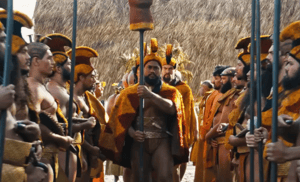Public Interest Journalism funded through NZ On Air
While sharing her incredible experiences, Aysha Nanai-Leifi talks about the highlights and struggles to get to where she is today. She has earned herself a spot on the world-stage at the Tribeca Film Festival, achieving so much in her creative career.
Aysha Nanai-Leifi is the creator and editor of Isle magazine, based in Melbourne, Australia. Her magazine has been featured in Vogue, and she has interviewed A-listers such as Issa Rae (Insecure) and travelled the world on behalf of Converse All Stars. For all her success Aysha is a humble and ambitious creative striving for opportunities while overcoming many challenges along the way.
After attending one of the most prestigious film festivals of the year, taking the stage at the New York Tribeca film Festival and walking the red carpet amongst some of America’s top celebrities, Aysha reflects back and shares her honest response on the event.
“It was like a really intimidating and unnerving experience. I struggle a lot with imposter syndrome and top poppy syndrome, which I feel like a lot of artists and creatives do.
So I was in my head a lot, like overthinking and I was kind of battling with like, you belong, to be here and like, no, you don’t. So I was just kind of yo-yoing between these two feelings of like, I’m worthy. I deserve it. So it’s like a back and forth of imposter syndrome. No, you belong here… No, you deserve this…” She adds.
Aysha is passionate about her creation Isle magazine, a publication focused on showcasing cultural editorial photography, interest pieces but more so spotlighting creative talents from across the moana. Her contributions to the medium and her background earned her the position as one Converse’s All Stars.
“I created the magazine for representation of like Melanesian Polynesian and Micronesian people. I kind of just created it because like, I didn’t see anything around Australia that was like a magazine for us.” Aysha Says.
“Started in like 2019 as, um, just like I was just going around and taking photos of people, like a lot of Islanders.”
“And just to kind of like, be like, you know, we’re here and like, I’m sick of waiting for like, um, opportunities to come to us. Like, so I just thought I’d create something for us in our community and yeah, our magazine.” She says.
This was not an easy task when she began delving into the complex intricacies of representation as she contended as an editorial.
“I made a lot of mistakes when I was first starting I magazine, cuz like previously we were called poly connection, which like already in the name was like quite controversial cuz like I was, it was called poly connection, but I was trying to represent like this broader, like obviously Melian and Micronesian too.”
“So the branding had to change, which is why it changed our magazine. Um, but yeah, like I’m still learning a lot like with rep representation and stuff and I’m just doing my best really. I’m just doing what I can.”












